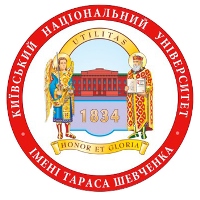TRANSLATION EDITING IN EDITORIAL STUDIES: CONCEPTUAL UNDERPINNINGS AND FUTURE DIRECTIONS
DOI:
https://doi.org/10.17721/folia.philologica/2025/9/5Keywords:
translation, translation studies, editor, translation revision, editorial studies of translation, book publishingAbstract
The present article delineates conceptual approaches for studying translation editing and positions the analysis of these practices within the field of editorial studies of translation. To this end, a focused historiographical analysis of key theoretical perspectives on translation editing in Ukrainian and global scholarship is undertaken, identifying key metatrends in the evolution of thought. The rationale for establishing editorial studies of translation as a distinct domain, capable of designing a more expansive editorial lens on translation, is argued. Drawing upon an editological framework, three complementary methodological lenses are developed and proposed for the comprehensive investigation of translated publications: the network-systemic, the conceptual-phenomenological, and the ideological-political. The network-systemic perspective focuses on the intersubjectivity and distributed agency inherent in the process of constructing translation edition, underscoring the multiplicity of stakeholders and their dynamic interplay. The conceptual-phenomenological framework foregrounds the dimensions of temporality, intentionality, and conceptual integration within the work on translated publications, demonstrating their influence on the final textual configuration and its subsequent reception. Within the ideological and political context of analyzing the work of an editor-compiler, we can draw upon a range of relevant perspectives, such as strategic essentialism (G.C. Spivak), the internalization of dominant ideology (the so-called “false consciousness”), subversion, and othering, as well as various others. This enables us to move beyond a purely technical and stylistic understanding of editing, revealing how the editor-compiler's choices actively shape meanings and either reproduce or challenge existing social and power relations within the text. The proposed network-systemic, conceptual-phenomenological, and ideological-political perspectives open up wide possibilities for further in-depth research into specific editorial practices, examining their multidimensional impact on translated editions.
References
Hubarets, V. (2012). Redaktor i pereklad. Osnovy vydavnychoi roboty z vidtvorenymy tekstamy. [Editor and Translator. The Basics of Publishing Work in Text Reproduction]. Ternopil: Navchalna knyha – Bohdan [in Ukrainian].
Kolomiiets, L. (2011). Perekladoznavchi seminary: metodolohichno-stylovi oriientyry v ukrainskomu poetychnomu perekladi vid kintsia XIX do pochatku XXI stolittia. [Translation Studies Seminars: Methodological and Stylistic Guidelines in Ukrainian Poetic Translation from the Late 19th to the Early 21st Century]. Kyiv: Vyd. “Kyivskyi universytet” [in Ukrainian].
Marynchak, V. (2017). Intentsionalnist literaturnoho tvoru: tsinnisnyi syntez u katastrofichnomu konteksti. [Intentionality of a Literary Work: Value Synthesis in a Catastrophic Context]. Slovo i chas – Word and Time, 11, 56–64 [in Ukrainian].
Mosop, B. (2020). Redahuvannia. [Revision]. Entsyklopediia perekladoznavstva – Handbook of Translation Studies. Vol. 2 O. Kalnychenko, L. Chernovatyi (Eds). Vinnytsia: Nova knyha, 179–184 [in Ukrainian].
Odrekhivska, I. (2024). Vid sotsiolohii do edytolohii perekladu: metateoretychnyi vymir. [From Sociology to the Editorial Studies of Translation: The Metatheoretical Dimension]. Pivdennyi arkhiv (filolohichni nauky) – Southern Archive (Philological Sciences), 97, 54–60 [in Ukrainian].
Odrekhivska, I. (2024). Edytolohichna kontseptsiia perekladu Yuriia Lutskoho yak propozytsiia hlobalnoho rozvytku ukrainskykh studii. [George Luckyj’s Editorial Concept of Translation as a Proposal for Advancing Ukrainian Studies Globally]. Naukovi zapysky. Seriia: Filolohichni nauky – Research Bulletin: Philological Sciences, 210, 202–208 [in Ukrainian].
Odrekhivska, I. (2024). Edytolohiia perekladu yak napriam perekladoznavchykh doslidzhen. [Editorial Studies of Translation as an Area of Translation Research]. Studia Methodologica, 57, 165–173 [in Ukrainian].
Partyko, Z. (2017). Zahalne redahuvannia: normatyvni osnovy. [General Editing: Normative Aspects]. Lviv: Afisha [in Ukrainian].
Puzanov, V. (2013). Vynyknennia y rozvytok redahuvannia perekladiv (doba formuvannia teorii). [The Emergence and Development of Translation Editing (The Era of Theory Formation)]. Derzhava ta rehiony. Sotsialni komunikatsii – State and regions. Social communications, 1, 150–154 [in Ukrainian].
Rebrii, O. (2010). Osnovy teorii redahuvannia perekladiv. [Fundamentals of Translation Editing Theory]. Kharkiv: Kharkivskyi natsionalnyi universytet imeni V. Karazina [in Ukrainian].
Rebrii, O. (2012). Suchasni kontseptsii tvorchosti u perekladi. [Modern Concepts of Translation Creativity]. Kharkiv: Kharkivskyi natsionalnyi universytet imeni V. Karazina [in Ukrainian].
Chernovatyi, L. (2013). Metodyka vykladannia perekladu yak spetsialnosti. [Methodology of Teaching Translation as a Discipline]. Vinnytsia: Nova knyha [in Ukrainian].
Campbell, S. (1998). Translation into the second language. Harlow: Longman.
Electronic Library of Ukrainian Literature: Ivan Franko “Boa Constrictor”. Retrieved from: https://tarnawsky.artsci.utoronto.ca/elul/English/Franko/Franko-BoaConstrictor.pdf.
Elhariry, Y. (2018). Temporality. New Literary History, 49 (2), 255–259.
Internet Encyclopedia of Philosophy. Edmund Husserl: Intentionality and Intentional Content. Retrieved from: https://iep.utm.edu/huss-int/.
Franko, I. (1957). Boa Constrictor and Other Stories. Moscow: Foreign languages Publ. House, Moscow.
Odrekhivska, I. (2017). Translation Editology: Conceptualising the Unknown Known Interdisciplinary Area of Translation Studies. Respectus Philologicus, 31 (36).
Popovič, A. (1975). Teória umeleckého prekladu: Aspekty textu a literárnej metakomunikácie. Bratislava: Tatran.
Reiss, K. (1989). Übersetzungstheorie und Praxis der Übersetzungskritik. Übersetzungswissenschaft und Fremdsprachenunterricht. München: Goethe-Institut. Ref. 42, 71–93.










